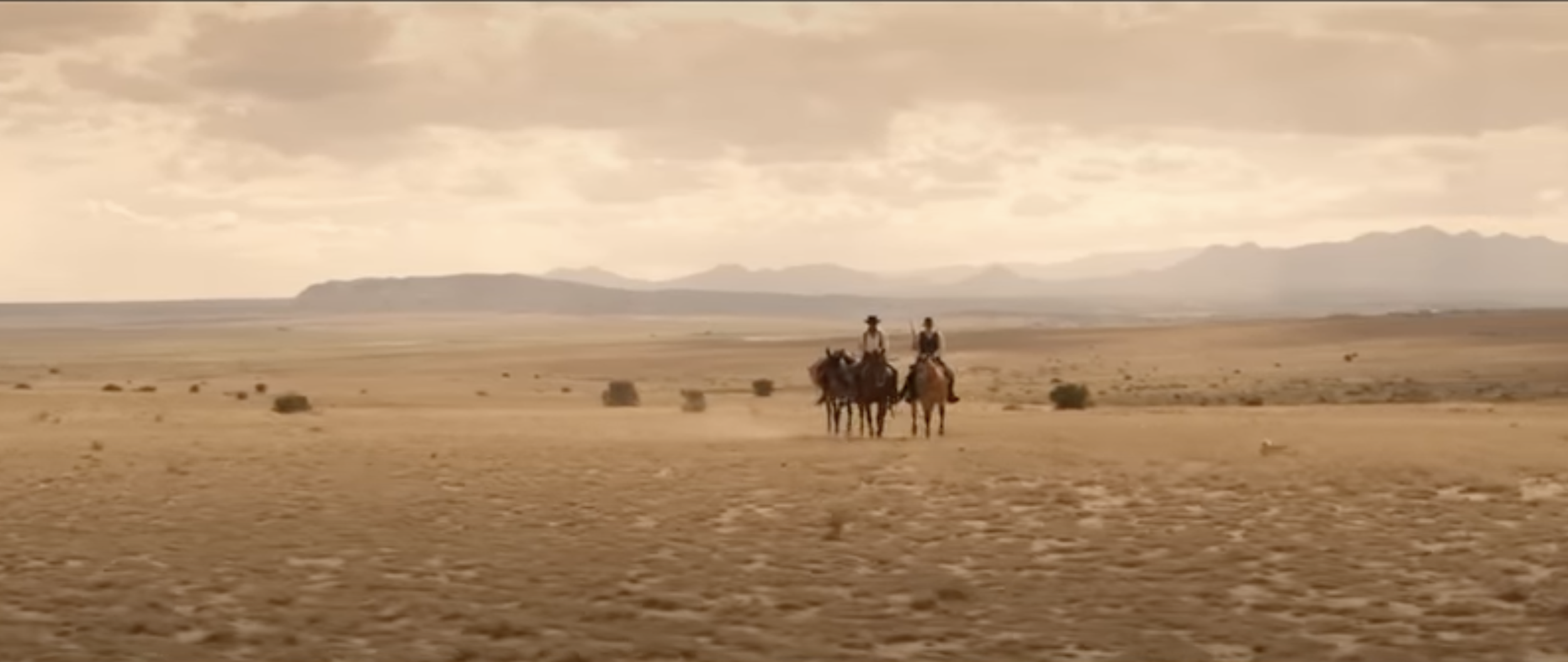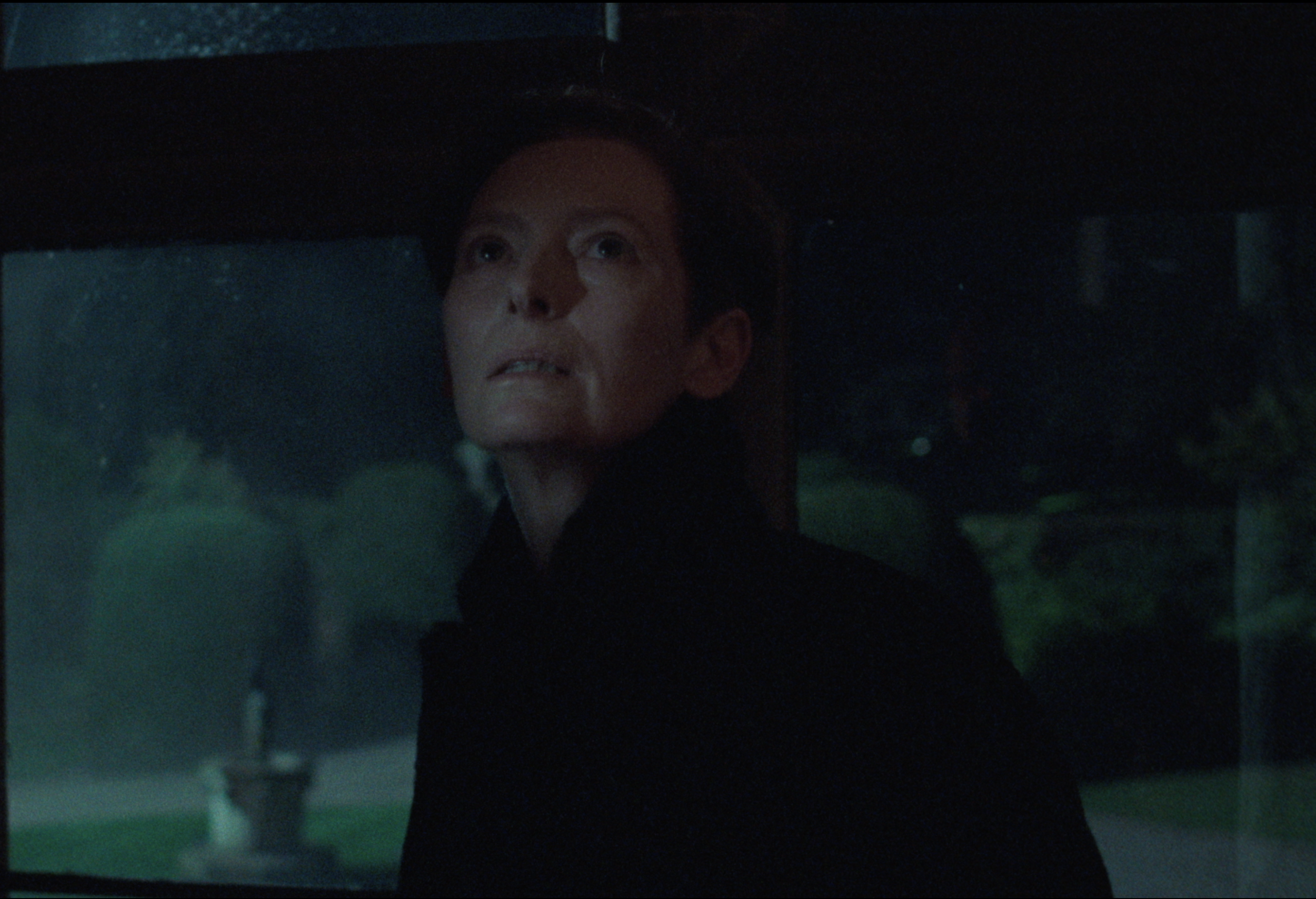Dead for a dollar Directed by Walter Hill
Dead for a dollar
Directed by Walter Hill
Starrings: Rachel Brosnahan, Willem Dafoe, Christoph Waltz, Hamish Linklater, Benjamin Bratt, Brandon Scott, Guy Burnet, Luis Chávez, Warren Burke, Diane Villegas, Diana Navarrete, Jackamoe Buzzell, Scott Peat, Shawn-Caulin Young, J.D. Garfield, Fidel Gomez, Herman Johansen, Otgadahe Whitman-Fox, Alfredo Quiroz, Ivan Lee Holmes, Weston Brownlee, Jeremiah Core, Gonzalo Robles, Doug Montoya, Lupe Preciado, Devin Gutierrez
Country: Canada, USA
Year 2022
Review Author: Shane Virunphan
Click Here for Italian Version
“Never killed nobody that wasn't trying to kill me.”
The vast outdoors is a symbol of freedom. The good and the bad ride through immense territories. These men are the heroes, the myth, anarchy, nihilism. They interpret the moral law in an infinite desert. Justice is not efficient. There are numerous, powerful and merciless enemies. Perhaps even the law is sometimes unfair. It is the West, unique, immortal, legendary. Western is a subgenre of historical film. The setting is placed in a specific period that is significant for the United States. The first states born of the tea revolt are joined by those to the east, uniting two different cultures. To do this, it was necessary to conquer large, sparsely inhabited areas, where the Red Indians lived. The aim was to support feverish immigration, which also included adventurers and bandits. This is the West:
“Adventures, love stories, shootings, duels to the death, smoky saloons assiduously frequented by poker players, horse chases are the ingredients of the genre and can be found both in the biography of a great outlaw and in the evocation of the journey of a convoy of emigrants, in the reconstruction of life in a fort or in that of large ranches. The Western of yesteryear no longer exists.” (1)
These themes were modified with more mainstream ones, in Walter Hill's latest film, Dead for a Dollar, a western set between New Mexico and Mexico, presented at the 79th Venice Film Festival.
1897, prairie, backlit, an African American and a woman, with an umbrella to protect herself from the sun, are riding in the desert. The scene changes. New Mexico, Albuquerque. Shot fired, a prison. Joe Cribbens is in the cell. He is a gambler, a ferocious shooter. He is visited by Max Borlund, a bounty hunter, who has arrested him. It is the first narrative thread.
The other interpretation is the assignment received by Max Borlund to find Rachel Kidd, the charming wife of a wealthy man from Santa Fe. Max accepts. He will get help from Elijah Jones, a soldier in the Buffalo Soldiers platoon. The search will lead them to Mexico, where the characters will face each other. Some die, others flee.
The Buffalo Soldiers have epic and heroic literature:
“In 1866, an Act of Congress created six all-black peacetime regiments, later consolidated into four –– the 9th and 10th Cavalry, and the 24th and 25th Infantry –– who became known as "The Buffalo Soldiers."
...
Initially, the Buffalo Soldier regiments were commanded by whites, and African-American troops often faced extreme racial prejudice from the Army establishment. Many officers, including George Armstrong Custer, refused to command black regiments, even though it cost them promotions in rank. In addition, African Americans could only serve west of the Mississippi River, because many whites didn't want to see armed black soldiers in or near their communities. And in areas where Buffalo Soldiers were stationed, they sometimes suffered deadly violence at the hands of civilians.
…
taking part in most of the military campaigns during the decades-long Indian Wars –– during which they compiled a distinguished record, with 18 Buffalo Soldiers awarded the Medal of Honor. This exceptional performance helped to overcome resistance to the idea of black Army officers, paving the way for the first African-American graduate from West Point Military Academy, Henry O. Flipper.” (2)
They were an exception in an army composed only of white soldiers. The Buffalo Soldiers demonstrated bravery and valour. Their inclusion has ethical significance. It is the author's goal to prove that blacks played an essential role in the mythical history of the United States. Walter Hill said it in an interview:
“... a small movie made for a limited budget, mainly about ethical standards.” (3)
To the African American military, Walter Hill adds women, who dominate current social thought. Always the director:
“So I wanted this movie to work within that tradition, but at the same time I wanted it to be able to speak to some modern issues and a modern audience—in this case, race and the proto-feminist movement. (4)
A wealthy white lady and some Buffalo Soldiers are added not to liven up the events but exclusively to adapt to the dominant ideas of the moment. Is that the most interesting aspect of Dead for a Dollar? Definitely not. The film's spontaneity is in the repetitiveness of the shootings, duels, horse rides, thieves, Rurales, evil Mexicans (stereotypes about Mexicans are politically correct, why?).
It is the skill of the filmmaker:
"I like that time, I love hanging out with the cast and the horses, it's maybe a nostalgic time in American history that all the world shares, all countries understand western culture and movies, well, they're fun to shoot." (5)
In fact, fun is guaranteed when it follows nostalgic and exuberant topics.
Roles are standard.
Max Borlund is a bounty hunter, a bounty killer. Sergio Leone defined the bounty hunter as the image of the whole western:
“The bounty hunter character, the bounty killer is an ambiguous character. In the West, they called him the undertaker. He fascinated me because he is the demonstration of the way of life in this country: it is necessary to kill to survive”. (6)
Max Borlund is haughty, cultured, complex, mature; he is not bad, he is not good, he is a bounty killer.
Joe Cribbens is a complete, classic personality, well-played by Willem Dafoe. Cynical but proud, he is logically a perfidious traditionalist, disillusioned but ready to achieve his goal: vengeance.
The other characters are story fillers, some complicated and some a bit boring.
The structure is peculiar to the genre.
The presentation of characters is demanding. Are many. The acquisitions are diverse: Max Borlund must perform his task to bring Rachel Kidd back to her husband. Joe Cribbens must take his revenge. Rachel Kidd must escape her spouse. The two Buffalo Soldiers are hopeless. Then, there are the Mexicans who want to get rich, and the Rurales, some of whom are fearless and follow the law, while others are fearful and corrupt.
Rachel Kidd is ruthless, she is the real villain: “I kill my husband”. She does not cry when her saviour is killed; instead, she deceives everyone to gain independence.
Acquisitions are realized through shootings and fighting. Others unite and help each other, others betray and separate. This is the effervescent contribution, the one with compelling rhythm and tension, with a pleasant plot.
Enjoyable rides in the airy endless, violent mass firefight. To increase the intensity, there are lots of light, lots of close-ups. Additionally, there is the abandoned city and the assault on it.
The director accompanies it with sand-tone photography and some black-and-white sequences. The screenplay is well written, with energetic dialogues.
A twist plot lowers intensity, interrupts the atmosphere, diminishes the characters, and adapts.
However, in the end, the figure of a genuine traditional woman of the West emerges. She is the receptionist at the village hotel. She is brave in the wilds, so she sides with good, and good in the West is a loaded rifle and excellent aim.
Philippe Paraire, Il grande cinema di Hollywood, Gremese editore, Roma, Nuova edizione illustrata, riveduta e aggiornata, 1996. Translated by the Author. https://www.google.it/books/edition/Il_grande_cinema_di_Hollywood/PPEQd5jFHI8C?hl=it&gbpv=1&dq=western+film+walter+hill&pg=PA45&printsec=frontcover
https://nmaahc.si.edu/explore/stories/proud-legacy-buffalo-soldiers
https://www.avclub.com/walter-hill-interview-dead-dollar-48-hrs-alien-deadwood-1849593194
https://www.avclub.com/walter-hill-interview-dead-dollar-48-hrs-alien-deadwood-1849593194
https://movieplayer.it/articoli/dead-for-a-dollar-intervista-walter-hill-christoph-waltz_27630/
Gianni Di Claudio, Il cinema western, Libreria Universale Editrice, Chieti, Seconda edizione ampliata 1995. . Translated by the Author.





















A metaphorical comparison between Akira Kurosawa’s Ikiru and its remake Living by Oliver Hermanus, presented at the 79th Venice Film Festival.